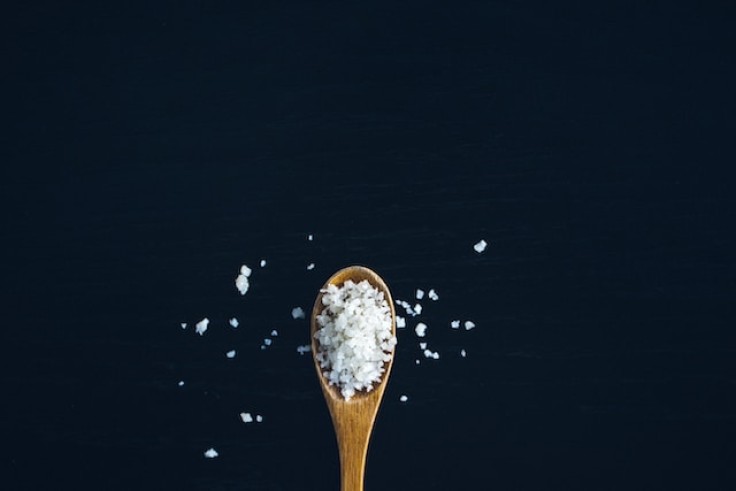
Alisha Reed, a resident of New Orleans, recently witnessed an unusual scene outside her local Costco store: a brass band and the Zulu marching crew entertaining crowds of customers waiting in long lines. The hot commodity? Bottled water. However, this wasn't the typical rush during a hurricane warning; it was in response to a different kind of threat: saltwater intrusion into the region's tap water.
The Science Behind the Threat: How Low River Levels Allow Saltwater to Invade
The issue at hand is saltwater intrusion, a consequence of the Gulf of Mexico's waters encroaching beyond their usual boundaries. The Mississippi River's downstream flow typically acts as a barrier, preventing ocean water from entering the freshwater supply. However, this year has been different, with record high temperatures and an extreme drought in the Midwest causing the river's volume to plummet. It still hasn't fully recovered from previous low-water years.
As saltwater creeps upstream, it jeopardizes municipal drinking water supplies. Prolonged exposure to saltwater can also corrode pipes, particularly those made with lead. Although some engineering efforts are underway to mitigate the problem, most water systems in the area don't have salt filtration.
High salt levels, approximately 250 milligrams per liter (mg/L) and higher, not only affect the taste of tap water but also render it unsafe for consumption or cooking. Beyond this threshold, it becomes challenging to even shower or wash dishes and clothes. While the human body requires a small amount of sodium to function, excessive sodium intake can be harmful.
Andrew Mente, an associate professor at McMaster University, explained that while a moderate amount of sodium is optimal, high sodium levels are associated with health risks. Given that many Americans already consume too much sodium, water with a high salt content compounds this issue.
For individuals on low-salt diets, those with kidney disease, heart problems, or high blood pressure, elevated salt levels in drinking water can exacerbate their health conditions. Pregnant women, infants, and the elderly are particularly vulnerable, with potential complications ranging from high blood pressure to kidney strain.
Salty water can elevate blood pressure, increasing the risk of heart attacks and strokes. The body retains more water in response to salt intake, placing additional stress on the heart and blood vessels. Kidney disease can worsen as the kidneys struggle to excrete excess sodium.
Certain medications may also be less effective for individuals with high-sodium diets, further complicating treatment for conditions like heart problems. Pregnant women may develop preeclampsia, a potentially deadly blood pressure disorder, due to excessive salt intake. Infants exposed to high salt levels may later experience hypertension.
To address the situation, New Orleans authorities advise parents to use ready-made formula or mix powdered formula with bottled water for infants. The elderly, with a higher incidence of cardiovascular disease, need to be cautious due to their elevated salt taste threshold.
Even pets are not immune to the effects of salty water, prompting the city to recommend using bottled water for them as well.
Alisha Reed, a pharmacist and member of the board at the American Heart Association of Greater New Orleans, expressed her frustration at her inability to provide a concrete solution to customers. Approximately one in three adults in New Orleans-more than half a million people-suffer from high blood pressure. With two-thirds of them residing in under-resourced communities, the financial burden of purchasing bottled water adds to their worries.
Unfortunately, the situation is exacerbated by the ongoing heatwave, which is expected to persist until November. Reed usually encourages people to stay hydrated, but now she faces a dilemma.
Rising Global Temperatures May Amplify Saltwater Intrusion Issues in the Future
Without substantial rainfall, parts of Louisiana may have undrinkable water for months. Some residents in Plaquemines Parish have been relying on bottled water for drinking and cooking since June. Although a reverse osmosis unit has been installed at the Pointe a la Hache Water Treatment Plant to filter out salt, the situation remains precarious.
For now, New Orleans' tap water remains safe to drink, but residents are urged to remain vigilant for any updates. Local water systems and the US Environmental Protection Agency are closely monitoring the situation. The Army Corps of Engineers predicts that saltwater will reach New Orleans' drinking water by mid-to-late October.
Louisiana Gov. John Bel Edwards declared a state of emergency in August, and President Joe Biden announced federal disaster assistance in September. Dr. Joseph Vassalotti, chief medical officer of the National Kidney Foundation, noted that while much of the research on the health effects of saltwater intrusion comes from developing nations, global warming and rising sea levels may make this issue more prevalent in the future.
As the people of Louisiana grapple with the impacts of saltwater intrusion, the situation serves as a stark reminder of the complex challenges posed by climate change and its consequences for essential resources like clean drinking water.
Related Article : Diluted Formula Milk Causes Electrolyte Imbalance, Fatal Seizures; Cows Milk Good Alternative for Babies at 6 Months